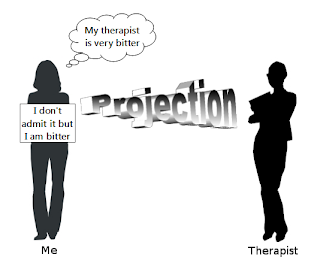The other day as I browsed my Netflix watch list for a way to occupy some of my Friday evening, I noticed a documentary was about to be removed. It's a documentary I've seen before, and even four-starred (out of five possible stars). And believe you me, I am stingy with those stars. The documentary is called The Invisible War. In it, filmmakers Kirby Dick and Amy Ziering interview dozens of women and men discussing the topic of military sexual trauma.
When I hear the words “military” and “trauma” in the same phrase, I think of PTSD resulting from combat, the horrific experiences felt and witnessed by men and women in war. Toss the word “sexual” in the middle of those two oft-linked words and the issue gets confused. String those three words together and my mind goes to POWs grossly abused and tortured as in the events that took place at Abu Ghraib. Certainly that would qualify as military sexual trauma. But this documentary is about US soldiers who have been traumatized and assaulted, not about US soldiers perpetrating heinous crimes against foreign POWs. The military sexual trauma discussed throughout The Invisible War, indeed the “invisible war” itself, is the infliction of sexual crimes by US military against US military and the ensuing battles that rage within and around the survivors as they try to come to terms with this most personal betrayal and seek justice from a biased and unjust system that would rather close its eyes and ears.
My understanding is that since the release of The Invisible War, several members of Congress have taken a keen interest in the plight of US military women and men who have been hurt and betrayed by their very own. A recent bill, the Military Justice Improvement Act of 2013, attempted to address flaws in the military justice system, but did not gain enough support to become law. Though the bill was not enacted there have been changes in how the military handles sexual assault cases. The documentary gives a bit of insight into those changes.
At the end of The Invisible War, the viewer is directed to the website http://www.notinvisible.org/. Shortly after viewing this documentary for the first time, I added that link to the “Helpful and Informative Sites” section of my blog (see “Not Invisible — US military” under the “PTSD” section heading). The website contains a variety of resources, current events, and general information for vets who experienced sexual assault while serving in the military. To the affected service men and women, the war you have fought and are fighting against military injustice and sexual trauma no longer has to be kept secret; this no longer must be an invisible war.
As I reflect on my own (nonmilitary) experiences with sexual trauma, I realize that one of the hardest parts was carrying the secret of what happened on my own. For more than two years, I lived completely alone with it, with the fear, the guilt, the shame, the sadness. I still struggle with that today. With keeping certain aspects of my experiences secret. Sometimes just the thought of someone else knowing even a little bit of what happened is enough to terrify me. But then, when that surge of fear passes, I know it is good to not keep this a secret. I need to not be invisible. If the war is invisible—if my struggles are invisible—I cannot be helped. And that may be as tragic as the experiences themselves.
Whether your heart seeks out stories of injustice because you are overflowing with desire to show compassion to the wounded in your community or whether you know someone personally who is struggling with issues or life events like those discussed in the film, I recommend you watch The Invisible War and find out how you can get involved. You can stream it on Netflix until 11/20/15. It is also available on iTunes or Amazon. And I'm sure there are a variety of other ways you can gain access to it as well. However, be warned that if you are easily triggered by this topic, you should proceed with caution. This film contains several accounts of sexual assault, some discussion on suicide, and some instances of harsh language.




